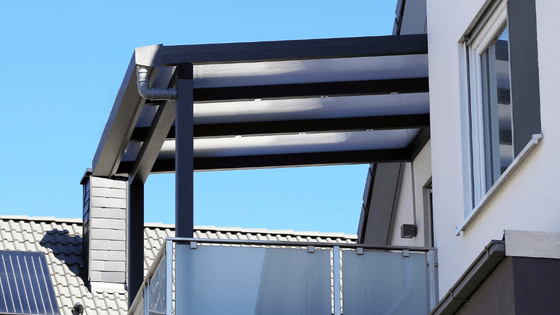Kloeckner Metals stocks CS type A in various carbon flat roll formats including cold rolled, galvanized, galvannealed, and galvalume.

CS Type A is a commercial galvanized cold rolled, low-carbon steel. It is intended for mild forming and bending. This carbon flat roll product designation suits projects where strength is more important that surface character, and where some amount of formability and corrosion resistance might be beneficial. Kloeckner Metals stocks cold rolled CS-A, galvanized CS-A, galvannealed CS-A, and galvalume CS-A.
Commercial Steel Type A is an economical steel that offers strength and formability. It offers strengths between 25 and 55 psi (170-380 MPa) with elongation upwards of 20%. It also shows good resistance to corrosion. One of the main disadvantages is that this steel is not intended for applications requiring a smooth, pleasant surface finishing character.
This commercial galvanized cold rolled, low-carbon steel is seen in many industries. As a designation for a grade of steel that is suitable for moderate forming processes, many industries might use CS-A for unexposed applications where good strength, corrosion resistance, and formability are needed. This may include architectural applications, building products, general construction, and others.
CS-A is intended for moderate forming applications. You might see it in building materials for commercial and residential structures, including houses, canopies, carports, schools, and stores. Galvalume CS-A is used for metal roofing.
CS-A can be machined.
CS-A can be welded.
CS Type A is heat treatable.
Commercial Steel Type A is an economical steel that offers strength and formability. It offers strengths between 25 and 55 psi (170-380 MPa) with elongation upwards of 20%. It also shows good resistance to corrosion. One of the main disadvantages is that this steel is not intended for applications requiring a smooth, pleasant surface finishing character.
This commercial galvanized cold rolled, low-carbon steel is seen in many industries. As a designation for a grade of steel that is suitable for moderate forming processes, many industries might use CS-A for unexposed applications where good strength, corrosion resistance, and formability are needed. This may include architectural applications, building products, general construction, and others.
CS-A is intended for moderate forming applications. You might see it in building materials for commercial and residential structures, including houses, canopies, carports, schools, and stores. Galvalume CS-A is used for metal roofing.
CS-A can be machined.
CS-A can be welded.
CS Type A is heat treatable.
This carbon flat roll product is roll-formed at room temperature. It does not have any additional processing or heat treatment.
This standard commercial steel format is first cold rolled and then exposed to a molten zinc bath. This improves corrosion resistance.
CS Type A steel that undergoes additional heat treatment has improved hardness and ductility, as well as better resistance to stress and cracking.
Galvalume offers the most protection. By combining cold rolled steel, aluminum, silicon, and zinc, galvalume CS-A offers enhanced toughness, strength, self-mending properties, and improved corrosion resistance that surpasses both galvannealed and galvanized CS-A steel. CS-A galvalume is most commonly used for building products, including roofs, walls, and trim among other applications.
This carbon flat roll product is roll-formed at room temperature. It does not have any additional processing or heat treatment.
This standard commercial steel format is first cold rolled and then exposed to a molten zinc bath. This improves corrosion resistance.
CS Type A steel that undergoes additional heat treatment has improved hardness and ductility, as well as better resistance to stress and cracking.
Galvalume offers the most protection. By combining cold rolled steel, aluminum, silicon, and zinc, galvalume CS-A offers enhanced toughness, strength, self-mending properties, and improved corrosion resistance that surpasses both galvannealed and galvanized CS-A steel. CS-A galvalume is most commonly used for building products, including roofs, walls, and trim among other applications.
ANSWER:
Commercial Steel Type A can be either galvanized (zinc-coated) or galvannealed (zinc-iron coated).
To determine whether the additional heat treatment will benefit a desired project, consider the importance of surface finish quality, paintability, lifespan, and level of corrosion resistance.
As a rule of thumb, annealing galvanized steel (i.e., galvannealed steel) will extend the life of the steel and improve corrosion resistance. Where galvanized steel takes on a shiny or spangled characteristic, galvannealed steel will have a duller quality that can be painted after fabrication.
The two main differences between these two commercial steels are the amount of carbon in their chemical composition (which indicates a difference in strength) and the formats in which they are available.
CS Type B has a wider range of carbon content – both higher and lower than that of CS type A. This leads CS-B to show higher strength levels, typically around 205 to 380 MPa. CS Type B is available in hot rolled dry, hot rolled picked & oiled, cold rolled, galvanized, galvannealed, and galvalume formats. CS Type A is not available in hot rolled dry or HRPO formats.
CS Type A has a chemical composition of carbon, phosphorous, manganese, sulphur, and iron.
ANSWER:
Commercial Steel Type A can be either galvanized (zinc-coated) or galvannealed (zinc-iron coated).
To determine whether the additional heat treatment will benefit a desired project, consider the importance of surface finish quality, paintability, lifespan, and level of corrosion resistance.
As a rule of thumb, annealing galvanized steel (i.e., galvannealed steel) will extend the life of the steel and improve corrosion resistance. Where galvanized steel takes on a shiny or spangled characteristic, galvannealed steel will have a duller quality that can be painted after fabrication.
The two main differences between these two commercial steels are the amount of carbon in their chemical composition (which indicates a difference in strength) and the formats in which they are available.
CS Type B has a wider range of carbon content – both higher and lower than that of CS type A. This leads CS-B to show higher strength levels, typically around 205 to 380 MPa. CS Type B is available in hot rolled dry, hot rolled picked & oiled, cold rolled, galvanized, galvannealed, and galvalume formats. CS Type A is not available in hot rolled dry or HRPO formats.
CS Type A has a chemical composition of carbon, phosphorous, manganese, sulphur, and iron.
Steel base plates are fundamental elements employed in various manufacturing processes. These flat, rectangular...
Metal fabrication is a critical process that transforms raw metal materials into finished products....
The solar industry has undergone a significant transformation by incorporating steel products into various...
The unprecedented pace of solar growth is challenging and reforming America’s construction and engineering...
If you’ve got a roof over your head, it’s partly thanks to purlins. A...
Acquiring highly profitable company with annual sales of around USD 30 million Significant expansion...
A stainless steel depot is a specialized facility or supplier that stocks and provides...
American manufacturers use about 28.2 billion pounds of aluminum every year, 41.6% of it...
Leading steel distributor expands commitment to sustainability in the North American market. Kloeckner Metals,...
At Kloeckner, we are excited to announce that our Santa Fe Springs, CA location...

X
The Kloeckner Metals website uses modern technologies. Unfortunately, your browser doesn't support those technologies.
Download the latest version of one of these browsers to experience the site: